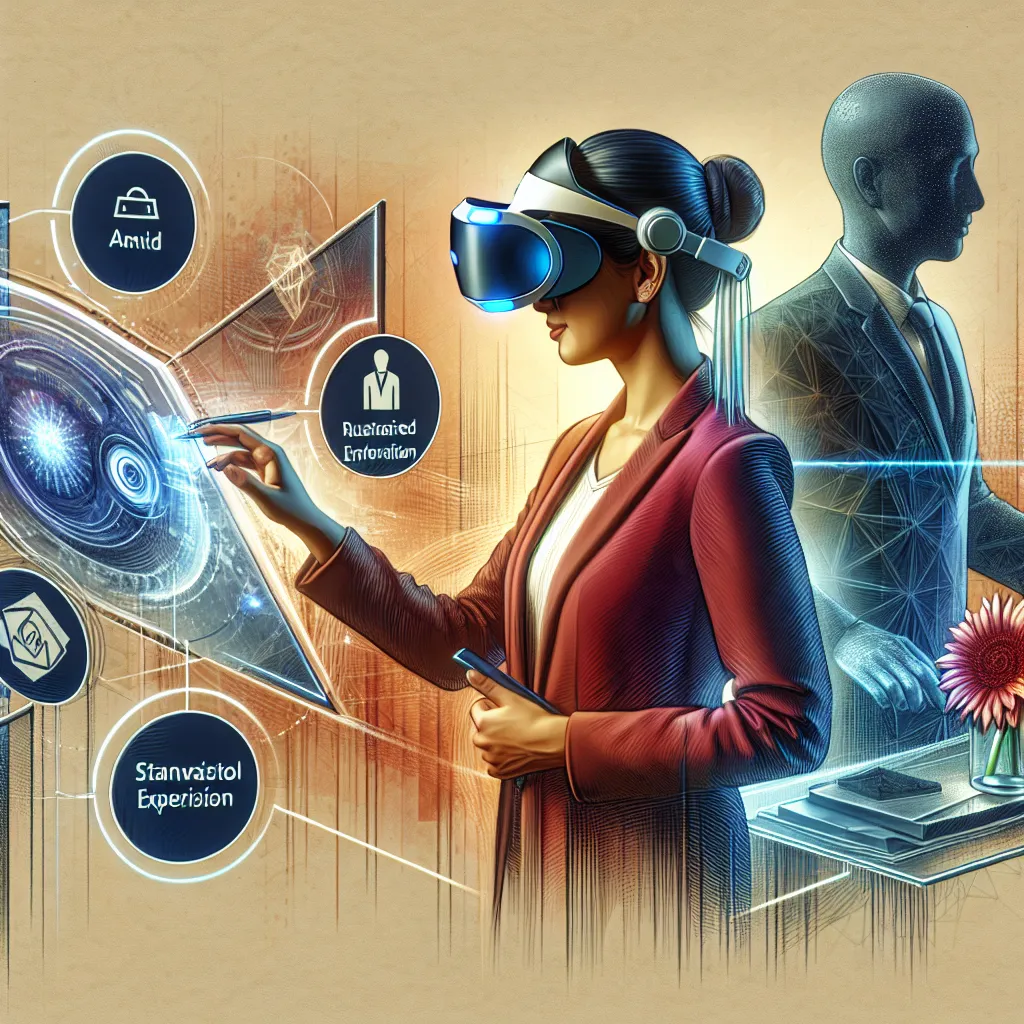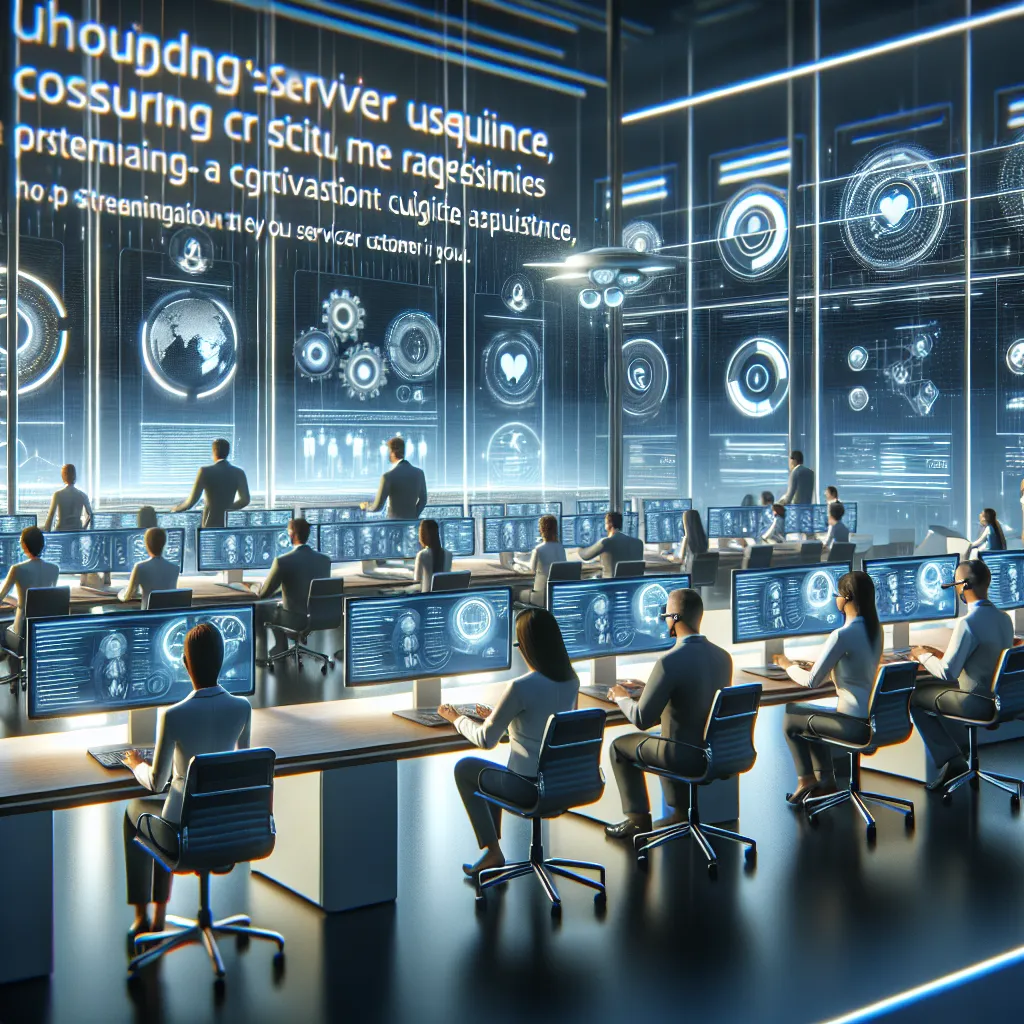Implementing Personalized Chatbots for Instant Customer Support
Implementing Personalized Chatbots for Instant Customer Support
In today’s highly competitive business environment, enhancing customer experience is crucial for the success of any organization. One of the innovative ways to improve customer experience is by implementing personalized chatbots for instant customer support. Chatbots have revolutionized the way businesses interact with their customers by providing real-time assistance and personalized solutions.
Personalized chatbots utilize artificial intelligence to understand customers’ preferences, behaviors, and needs. By analyzing past interactions and purchase history, these chatbots can offer personalized recommendations, assistance, and support. This level of personalization creates a more engaging and tailored experience for customers, ultimately leading to higher satisfaction and loyalty.
Moreover, personalized chatbots enable instant customer support, eliminating the need for customers to wait in long queues or navigate complex IVR systems. Customers can receive immediate assistance and answers to their queries, enhancing their overall experience with the brand. This instant support capability not only increases customer satisfaction but also contributes to greater operational efficiency for the business.
Additionally, implementing personalized chatbots allows businesses to gather valuable customer data and insights. By analyzing the interactions between customers and chatbots, organizations can gain a deeper understanding of customer preferences, pain points, and frequently asked questions. This valuable data can be utilized to further customize the customer experience, develop targeted marketing strategies, and improve products or services.
In conclusion, implementing personalized chatbots for instant customer support is a powerful innovation that can significantly enhance the overall customer experience. By leveraging artificial intelligence and personalized interactions, businesses can create more meaningful connections with their customers, increase satisfaction, and gain valuable insights for continuous improvement.
Leveraging Augmented Reality for Interactive Product Demonstrations
In today’s competitive business landscape, enhancing customer experience is crucial for gaining a competitive edge. One innovative approach that companies are leveraging to achieve this is the use of augmented reality (AR) for interactive product demonstrations. By integrating AR technology into their customer service offerings, businesses can provide an immersive and engaging experience that allows potential customers to interact with products in a virtual environment.
Augmented reality enables customers to visualize products in a realistic way, allowing them to see how a product would fit into their daily lives or living spaces. This level of interactivity not only enhances the customer’s understanding of the product but also creates a memorable and impactful experience. Furthermore, by leveraging AR for interactive product demonstrations, businesses can showcase a wider range of products without the need for expansive physical retail space.
By adopting AR-based interactive product demonstrations, companies can attract and retain customers by offering a unique and engaging experience that sets them apart from competitors. This technology also has the potential to streamline the sales process by providing customers with a more informed and personalized shopping experience. As a result, leveraging augmented reality for interactive product demonstrations is proving to be a game-changer in enhancing the overall customer experience and driving business growth.
Customized Loyalty Programs: Enhancing Customer Satisfaction and Retention
Customized loyalty programs have emerged as a powerful tool for enhancing customer satisfaction and retention in today’s competitive business landscape. By tailoring loyalty programs to individual customer preferences and behaviors, businesses can forge deeper connections with their clientele and foster a sense of exclusivity and personalization. This level of customization not only enhances the overall customer experience but also plays a pivotal role in driving customer retention and advocacy.
One of the key advantages of customized loyalty programs is their ability to align incentives with the specific needs and preferences of each customer. Through advanced data analytics and customer segmentation, businesses can gain valuable insights into individual purchasing patterns, engagement levels, and product preferences. Armed with this knowledge, they can design personalized rewards and incentives that resonate with each customer segment, effectively increasing engagement and loyalty.
Moreover, customized loyalty programs enable businesses to offer a more tailored and relevant rewards system, which in turn leads to higher customer satisfaction. By providing rewards that are meaningful and aligned with the customer’s preferences, businesses can create a sense of appreciation and acknowledgment, strengthening the emotional bond between the customer and the brand. This, in turn, leads to enhanced satisfaction and a greater likelihood of repeat purchases and long-term loyalty.
Furthermore, the data gathered through personalized loyalty programs can be leveraged to deliver targeted offers and promotions, contributing to a more personalized and impactful customer experience. This targeted approach not only increases the effectiveness of marketing initiatives but also demonstrates an understanding of the customer’s individual needs and preferences, further solidifying the brand-customer relationship.
In conclusion, customized loyalty programs are a potent tool for enhancing customer satisfaction and retention. By leveraging customer data and preferences, businesses can create personalized rewards and incentives that resonate with their clientele, ultimately leading to stronger customer relationships, higher satisfaction levels, and increased retention and advocacy.




